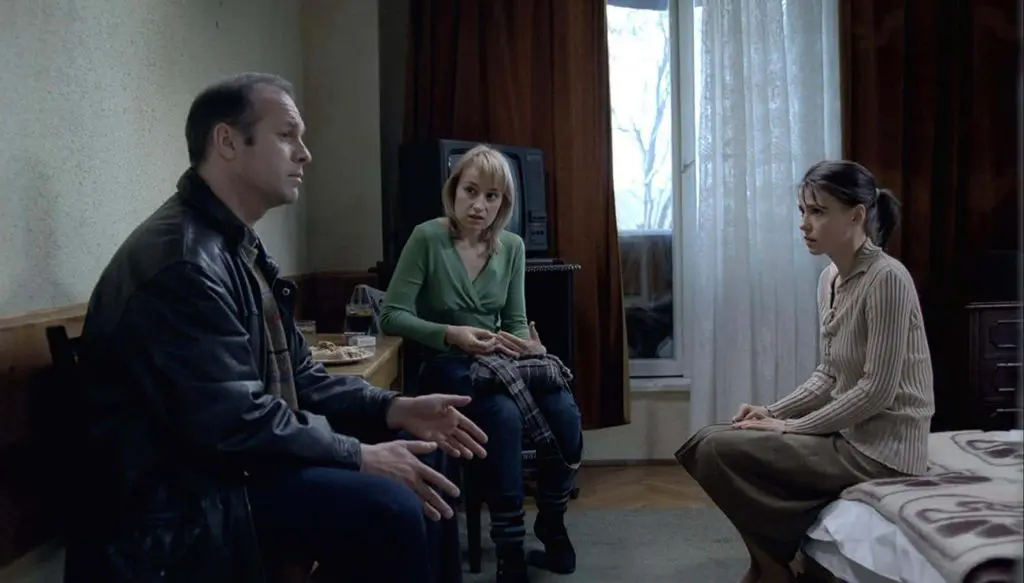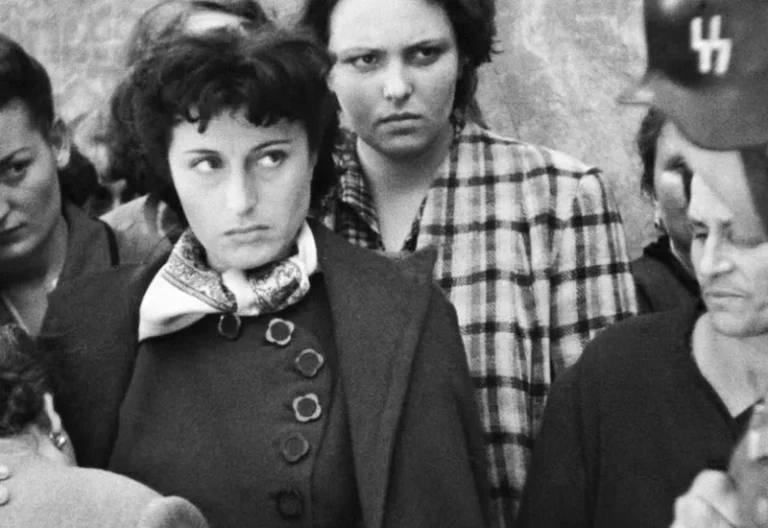romanian new wave
est. 2004 – now
Emerging in the early 21st century, the Romanian New Wave marked a significant turning point in the Romanian cinema. Characterized by its realist style, socially relevant narratives, and a focus on the complexities of post-communist Romanian society, the movement gained international acclaim for its distinctive storytelling and artistic vision.
Published by: CinemaWaves Team | Filed Under: Film Movements
Origins of the Romanian New Wave
The early 1990s marked a period of great societal and political changes in Romania. The end of communist rule, and the establishment of a democratic government, brought a sense of newfound freedom, but also the complexities of navigating a transition to a market economy, and the uncertainties of building a democratic society.
In the wake of the revolution, Romania experienced an intellectual and artistic renaissance as filmmakers, writers and artists sought to explore the multifaceted aspects of their society. This period of introspection and cultural revival created an environment for the development of a new wave in Romanian cinema. Romanian directors were influenced mainly by Italian Neorealism and several prominent international auteurs, with a particular nod to the works of filmmakers like Michelangelo Antonioni and the Dardenne brothers, whose exploration of alienation and existential themes resonated with the emerging Romanian cinematic voice.
Before the New Wave, Romanian cinema had sporadic success with filmmakers like Lucian Pintilie and Dan Pita, who occasionally broke through the state-controlled film industry with more personal and critical works. However, it was not until the early 2000s that a cohesive movement began to take shape.


Characteristics of the Romanian New Wave
The challenges of transitioning from a communist regime to a democratic society became a central theme in the films of the Romanian New Wave. Filmmakers grappled with questions of identity, morality, and the impact of historical, and political changes on the individual. Films within the movement often adopt a realist style, portraying the daily struggles and challenges faced by the ordinary people. It frequently criticized bureaucratic systems, highlighting the dehumanizing effects of bureaucratic processes.
The focus on authenticity and the use of non-professional actors contribute to a heightened sense of realism. The movement is also known for its minimalist aesthetic, avoiding elaborate sets, special effects, and sensationalist narratives. Instead, it focuses on the subtleties of human behavior and the intricacies of social interactions.

Important Romanian New Wave Films and Directors
One of the central figures of the Romanian New Wave, Cristian Mungiu, with his Palme d’Or-winning film “4 Months, 3 Weeks and 2 Days” (2007), set in the final years of the communist regime, explored the harrowing experiences of two women attempting to secure an illegal abortion. Mungiu’s films explore moral dilemmas and the impact of political and social structures on individuals.
Another pioneer of the movement, Cristi Puiu‘s film “The Death of Mr. Lazarescu” (2005) is considered a cornerstone of the Romanian New Wave. The film’s observational style, and critique of the healthcare system, became emblematic of the movement’s social realism. Puiu’s work often delves into the human condition, utilizing long takes and a documentary-like approach to capture the nuances of his characters.
Significant contribution to the movement came from Radu Jude with his film “I Do Not Care If We Go Down in History as Barbarians” (2018). The title is inspired by a quote from the Nazi official Adolf Eichmann during his trial in 1961, suggesting a chilling indifference to the consequences of one’s actions in the pursuit of an ideology. The film delves into themes of history, memory, and responsibility, using a mix of dark humor and sharp satire.

Impact and Legacy of the Romanian New Wave
The Romanian New Wave dedication to unflinching realism, social critique, and minimalist aesthetics has inspired filmmakers worldwide to embrace a more authentic and unvarnished approach to storytelling.
Beyond its artistic influence, the movement has contributed to a renewed interest in Eastern European cinema, allowing stories from the region to find a global audience. As this movement continues to evolve, it serves as a powerful reminder of cinema’s capacity to confront uncomfortable truths and provoke meaningful dialogue. The Romanian New Wave is a cinematic treasure that invokes exploration of the human experience, one unfiltered frame at a time.
Refer to the Listed Films for the recommended works associated with the movement. Also, check out the rest of the Film Movements on our website.
In the aftermath of World War II, Italy was a country in ruins, both physically and economically. Amidst the rubble and despair, a group of visionary filmmakers arose to…
A loosely defined, unconventional, movement of Greek cinema that surfaced in the late 2000s as a response to the country’s economic and social challenges. Characterized…
Third Cinema is a revolutionary film movement that emerged in the 1960s as a response to the dominant ideals of Hollywood (1st Cinema) and European art cinema (2nd Cinema)…
The 1960s was a tumultuous era of change and transformation across the globe, while in the former Yugoslavia, a unique and provocative film movement known as the…
Experimental film, referred to as avantgarde cinema, is a genre that defies traditional storytelling and filmmaking techniques. It explores the boundaries of the medium prioritizing…
The development of slow, or contemplative cinema is rooted in the history of film itself. Understanding slow cinema involves examining its evolution from early influences to its…






